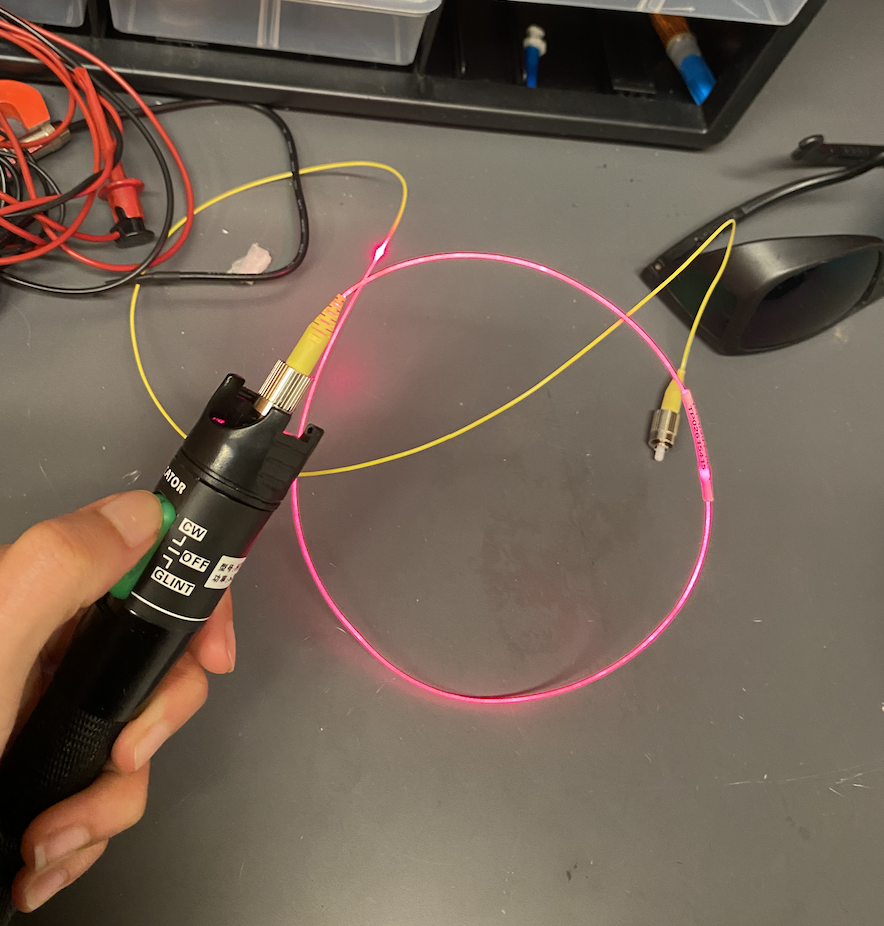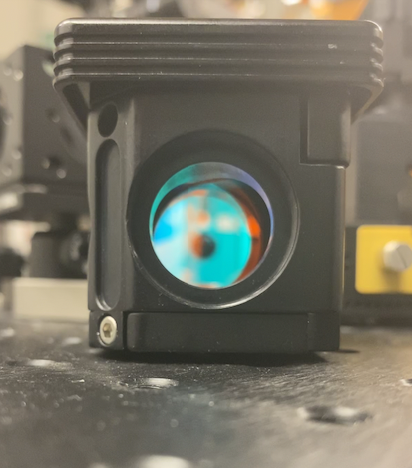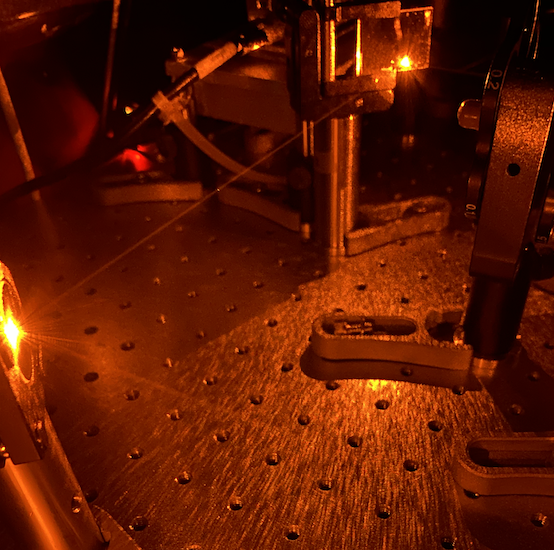I spent 2023 at a lab at Harvard. It was my first time engaging with the institution of science.
I saw a living brain under the microscope for the first time. I'll never forget that moment, because it's where it really struck me that our minds are made of neurons.
So messy, sprawling, and far removed from our own length and timescale that I felt a twinge of despair.
To image at the scale of neurons, we have a slew of exotic objects. Proteins with specific geometries to couple voltage to light reemission. We have femtosecond lasers, whose bursts of light are the fastest events humans can generate.
The laser sits in a two-by-four-feet box and is truly a love letter to electromagnetism and human engineering. It has no moving parts, but relies on a clever arrangement of materials in a cavity to encourage overlapping standing waves phased to sculpt out femtosecond (10^-15 s) bursts.
A laser is more cello than computer
If nothing else, the lab was a stimulating place. I got to know a ton of new objects.



Being in the lab could induce a unique state of constant problem-solving, which is very fun. There was a period of two weeks where I would wake up, go to the lab, work until 1 am, go home, sleep, repeat.
And yet, there was something wrong about the place. I was there for a year, a year that was dotted with confusion and internal turmoil. There was a culture of excellence, which I didn't like and thought was a misunderstanding of science.
When, later on, we told people that we were working on a brain scanner, the first question we got was, "for your PhD, right?". After we'd said no, the next question we would get was, "so you'll do a PhD afterwards?" They couldn't seem to understand that the purpose of making a brain scanner was to make a brain scanner.
People wanted to be good and have a PhD, which is a total misunderstanding and potentially dangerous. The culture rewarded people for having good answers instead of good questions. I caught myself wanting to be a good student and wanting to be better at physics to impress teachers, which is absolutely insane.
The atmosphere was strangely industrial, and devoid of faith. How could you do science without mysticism? You need a wild, primitive imagination to have faith that the future will look vastly different from the present. You need to be able to look at our magnetometers, water pumps, sequencers, vacuums, furnaces, solenoid valves, blenders, cotton gins, electroplated cutlery, elemental aluminum, airfoils, NMR coils, zinc batteries, chemical refrigerants, hydraulic brakes, brushless motors, murano glass, confocal microscopes, and know that this is not even a drop in the ocean of all that humanity will ever create.
Open invitations
Here are some things I'm doing that I would love for people to join!
January 27 - February 1: Photonics West. Apparently David Holz's favorite conference, I've been told it's a jamboree of lasers, devices, graphics, and artists.
January: research sprint in LA. We're gunning towards a demo, and we'd love if people did a trip down to LA to come see it.
Rest of year: San Francisco. Details not figured out, but we're running lxm again with the same offer of a place to stay, and hardware hacks on the weekend.
Side projects I'd like to hack with people on
1. Hardware hacks 2. Apple Vision Pro 3. something to decrease loneliness